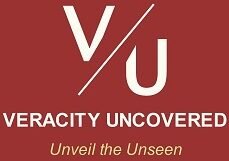PAC

PAC is a common phrase for a political group that isn’t a “candidate’s authorized committee” or “party committee.”
An organization known as a political action committee, or PAC, is used by “interest groups” to legally raise and spend money on elections. It is one of the four main funding sources for congressional races, the other three being “individual citizens, candidates, and political parties.”
Any unauthorized/unofficial committee is referred to as a “Political Action Committee (PAC).” Furthermore, any unauthorized/unofficial committee that “has not been approved by a candidate” to request or accept donations on their behalf is considered a PAC.
Depending on whether the PAC is connected to a sponsoring group, the word “political action committee” (PAC) relates to either “separate segregated fund” or “political committee,” which are two legal expressions that are not found in federal law. There is no mention of “political action committee” in federal law; the phrase is colloquial.
Tax deductions do not apply to contributions made to “political action committee” (PAC). Please see IRS Publication 529, “Miscellaneous Deductions,” for a detailed explanation of what constitutes a non-deductible political contribution.
IRC “section 527” imposes taxation on political action committees (PACs), and it can also have filing obligations to the Service. A PAC seeking to be exempt must notify the IRS via a “timely notice” (Form 8871) that it wishes to be handled as a tax-exempt entity.
According to Section 6113 of the “Internal Revenue Code,” political committees with gross yearly receipts that typically surpass $100,000 must notify solicitees in writing of the fact that contributions are not tax deductible.
Nonconnected committee -
A nonconnected committee is not “affiliated with a party, authorized by a candidate, or classified as a labor or corporation organization.” Consequently, is allowed to ask for donations from the broader population. “Political action committee” (PAC) is a type of nonconnected committee.
Even so, an “unincorporated association” or partnership — another non-labor organization — may provide a nonconnected committee with restricted administrative and financial support.
Funds may be used by a “nonconnected committee” for any legitimate purpose as long as the purpose complies with Act and “Commission rules”.
Funds raised for federal elections may be contributed to nonfederal candidates by a “nonconnected committee.” State and local rules govern donations to nonfederal candidates; the “Federal Election Campaign Act” does not apply to these donations.
Legislative members and other political figures frequently form “independent committees,” commonly referred to as Leadership PACs.
Separate Segregated Fund (SSF) -
Political action committee (PAC) known as SSF is run and formed by “trade association, labor union, company, or membership organization.” Only people related to a sponsoring or affiliated organization may make “contributions to this committee.”
Despite the fact that businesses and “labor unions” are normally not allowed to contribute to federal elections, they are allowed to establish “political committees” (commonly PACs) under the “Federal Election Campaign Act (the Act) and Commission” regulations. The Act permits these “political committees” to generate funds for the purpose of supporting “federal candidates and other committees” with donations and expenses. The “connected organization” is a business or union that supports an SSF.
SSFs have the ability to donate to candidates and their “authorized committees.” A political committee that has been given permission by a candidate to take donations and “carry out expenditures” on their behalf is known as an “approved/authorized committee.” The SSF’s ability to function as a multicandidate committee determines the “upper limit” on contributions it may make to a candidate or candidate’s committee.
Contributions to an SSF are kept apart from the normal corporate or union treasury, as the name suggests. The “connected organization” may pay the SSF’s founding, running, and fundraising expenses from normal treasury account.
The “connected organization” is also capable of overseeing its SSF.
In accordance with FEC regulations, an LLC that chooses to be classified as a corporation by the “Internal Revenue Service” (IRS) or that has shares that are “traded publicly” will be regarded as such and thus may function as the connected organization for an SSF.
FEC requirements treat LLCs as “partnerships,” that choose to be classified neither corporations nor partnerships by the IRS.
PAC Types -
Common PAC kinds include “Traditional, Leadership, Partnership, Super, Hybrid, and Lobbyist/Registrant.”
Traditional PAC -
Candidates may receive money from a “traditional” unaffiliated/nonconnected PAC. A conventional nonconnected PAC may “distribute materials supporting politicians and parties” (including making independent expenditures) in addition to contributions and other monetary assistance. Independent expenses have no upper bound and are not considered contributions.
A communication expense, such as an advertisement via a “web page, digital gadget, software application, advertising platform, media outlet, TV, or direct mail,” is referred to as an independent expenditure.
Traditional nonconnected PAC types include: a leadership PAC started by an officeholder or candidate, a federal PAC that supports federal candidates but lacks corporate or labor support and “a federal PAC supported by an LLC, partnership, or other unincorporated business organization that donates to federal candidates.”
Leadership PAC -
A political group that is directly or indirectly founded, managed, funded, or controlled by a “candidate or someone holding federal office” is known as a Leadership PAC. A leadership PAC is neither “affiliated/connected to” nor “an official/authorized committee of a candidate or officeholder.”
Typically, a Leadership PAC backs candidate(s) running for state or federal office. “Contributions” (Federal Election Campaign Act) are the only way that money can move between a Leadership PAC and a candidate’s approved committee.
It is prohibited for any PAC “founded, funded, run, or controlled” directly or indirectly by a federal candidate to “raise, direct, accept, transfer, spend, or distribute” money in relation to a “federal office election” (includes Federal Election Activity). A PAC of this type may handle finances related to a nonfederal election.
Political party committees are not included in Leadership PACs.
Partnership PAC -
Subject to certain restrictions, partnerships and limited liability corporations (LLCs) recognized as “partnerships” for tax reasons/purposes are permitted to contribute to federal elections. Sponsoring a “nonconnected PAC” allows a partnership to take part in federal elections.
A partnership benefits from two things when it sponsors PAC. First off, the partnership or any of the individual partners are typically not given credit for “contributions made by the PAC.” Second, the PAC’s contribution limit becomes higher than the partnership’s once it becomes eligible as a “multicandidate committee.”
The amount of unreimbursed support (e.g., phones, office space, etc.) that a partnership may provide to its “nonconnected political action committee” (PAC) is restricted since it is viewed as a contribution.
Contributions to political committees are normally forbidden for “limited liability companies” (LLCs); nevertheless, they are permitted to create their own segregated fund (SSF). Funding for “independent expenditure-only PAC” may also be granted by LLC.
Super PAC -
A Super PAC is free to ask for and receive any amount of money from “people, businesses, labor unions, and other PACs” in order to support independent expenditures and other independent political activity. Contributions from “foreign nationals, national banks, federal contractors, or corporations with federal charters” are prohibited for Super PAC. Super PAC is not permitted to give contributions directly to “political parties” or candidates.
Super PAC, which is sometimes referred to as independent expenditure committee.
Hybrid PAC -
Hybrid PAC, sometimes referred to as the Carey Committee, raises money from “people, businesses, labor unions, and/or other political committees” in an unlimited quantity and deposits it into a separate bank account.
There shall be no “direct, in-kind, coordinated communications, or coordinated spending” contributions made to federal candidates or committees using the money kept in this separate account.
In addition to independent expenditures, without coordinating with the “candidate or their campaign,” the separate account fund can also be utilized for general voter drives and ads mentioning federal candidates.
The advantage of both traditional PAC and Super PAC is available to Hybrid PAC. While raising an infinite amount of money for independent expenditures, this PAC can also continue to actively/directly support candidates within the “permitted contribution limitations.”
Lobbyist/Registrant PAC -
Registrant PAC is any political committee that is founded or managed by “an individual who is currently registered under the Lobbying Disclosure Act” or an individual whose name appears on a current Lobbying Disclosure Act registration or report.
Further, a PAC is a “lobbyist/registrant PAC” if a lobbyist/registrant directed the committee’s governance or operations, or if it played a major role in the committee’s formation.
Also, if a PAC is a “separate segregated fund” (SSF) with a connected organization that is a current “lobbyist/registrant,” then it is regarded as a lobbyist/registrant PAC.
If contributions are bundled by a lobbyist/registrant PAC, then “they must be disclosed” (on reaching a limit) by candidate-controlled campaigns and leadership PACs.
Official Website of Federal Election Commission: https://www.fec.gov/
That’s all friends.
Suggestions or corrections for this page can be submitted from the “contact us” page.
Ads Section

